by Robert Lynch; July 31, 2025; revised and updated, August 6, 2025
[Note: Subsequent to the July 31 posting of this story, Tompkins County Government, by an announcement Tuesday, August 5, stated its intent not to relocate the Board of Elections out of Downtown Ithaca. Expected an updated report to be later posted. / RL]
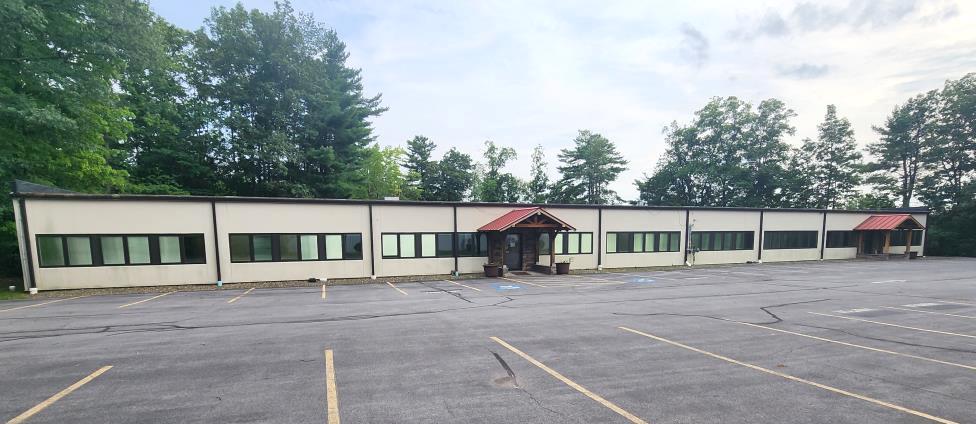
Despite the objections of some, the Tompkins County Board of Elections may soon move out of Downtown Ithaca and into an office park in Lansing, relocating to a spacious, low-slung building that Tompkins County would buy for $1.2 Million.
Tompkins County’s Assessment Office would join it there. Both departments face eviction from their current location at 128 East Buffalo Street—so-called “Building C”—a building County Government will “deconstruct” later this year to make way for a new $50 Million Center of Government.
Groton legislator Lee Shurtleff, Chair of the County Legislature’s Facilities and Infrastructure Committee, has placed a resolution onto the Legislature’s August fifth meeting agenda that would buy the Lansing building. It’s located in an office park at 31 Dutch Mill Road, not far from the UPS terminal and a mile and a half from the Ithaca-Tompkins Airport.
Indeed, real estate will dominate the Legislature’s August 5 meeting. A second, unrelated resolution, member-filed by legislator Greg Mezey, would authorize Tompkins County to execute a multi-year lease with the Maguire car dealership’s parent company for the Commercial Avenue building Maguire owns to become a temporary home for the state-mandated Code Blue emergency homeless shelter.
The prospective Code Blue Shelter, as stated in the resolution, is at 100 Commercial Avenue. 100 Commercial Avenue currently houses the Harbor Freight equipment supply store.
(The exact street address appears to have been stated with inadequate specificity Later discussion at the Tompkins County Legislature’s August fifth meeting, during which the resolution was adopted, indicated that the subject building is actually the vacant Burger King restaurant at 340 the Elmira Road. Contacted this date, resolution author Greg Mezey clarified that both the Burger King and Harbor Freight buildings stand on a common tax parcel, consolidated and co-owned by Maguire and assigned the Commercial Avenue address.)
But it’s the Board of Elections relocation out of Downtown Ithaca that may prompt the most controversy. Elections advocates have already said they’d prefer the office to remain in Tompkins County’s population center so as to facilitate and encourage voter registration.

“It’s incredibly important” to keep the Board of Elections downtown,” voting registration volunteer Nancy Skipper told a Legislature-sponsored “Community Engagement Town Hall” July 28th, a meeting held to explore design options for the Center of Government. “A lot of our newer voters, new citizens, don’t have cars.”
“I have often told people how to walk to the Board of Elections, and they look very, very happy,” Skipper said. “So I hope you can continue to make the Board of Elections accessible and easy to find.”
Indeed, of the nine members of the public who addressed the Town Hall that night, calls for the Board of Elections to remain downtown became a dominant theme. At least three speakers referenced it.
“I think that service that the County provides for free, fair elections is more important than ever,” Michelle Wright commented. Wright urged County leaders to ensure that the Elections Office “stays in the fold and really visible to everybody and not outside of downtown somewhere.”
At that point, Legislature Chair Dan Klein entered the Monday night discussion. Klein assured attendees that any rural relocation would only be temporary, a necessary move to enable the Buffalo Street building to come down and the new building to go up.
“The relocation of the Board of Elections is temporary, just during construction,” Klein told critics of any outward migration. “The plan is to bring it right back here; there, or there, or within a block.”
Seated in Legislative Chambers adjacent to DeWitt Park, Klein pointed randomly in the air as he spoke. And there lies a problem. Neither legislators nor architects plan to quarter the Board of Elections in the Center of Government once the new building’s opened in late-2028. They argue that the Board of Elections would need ground floor space, and that the first level has already been set aside for other services like the County Clerk and the Office for the Aging.
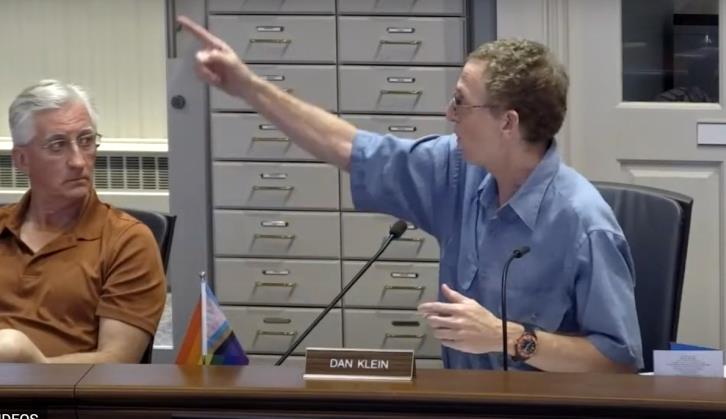
While an initial relocation study proposed the Board of Elections eventually transition to the Human Services Annex at State and Albany Streets downtown, some legislators have balked at that scenario, suggesting it would be better for Tompkins County to offload the Human Services Annex for private development, perhaps housing.
Quite frankly, at this point, the Board of Elections is an office orphan. Nobody’s quite sure where it’ll go permanently.
The now-likely Dutch Mill Road building purchase was never mentioned during the July 28 meeting, although the resolution supporting its purchase was placed onto the Legislature’s August 5 agenda within the next two days. Governmental property purchase plans seldom reach meeting agendas before they’re resolved behind closed doors. So one can pretty much assume the Lansing building’s buy is a done deal.
“We haven’t agreed on a location yet,” County Administrator Korsah Akumfi advised the Monday meeting, an amazing statement for him to make in that the purchase resolution got posted so shortly thereafter.
Akumfi claimed that as many as 25 alternate, interim sites had been considered for the Board of Elections. “We’re looking at multiple locations,” the Administrator told attendees, but acknowledged, “We couldn’t find a reasonable place in the city.”
Tuesday’s legislative resolution would amend Tompkins County’s Budget and 2025 Capital Plan “to include the acquisition and associated closing costs” for the 31 Dutch Mill Road property “at a total cost not to exceed $1,200,000, plus any associated closing costs.”
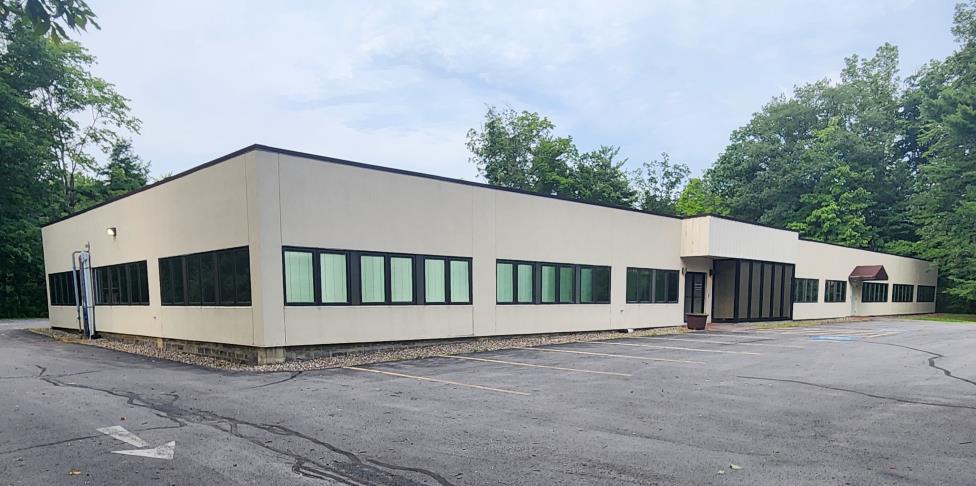
Shurtleff’s resolution would draw the purchase funds from Capital Reserve funds set aside for the Center of Government project. It claims a Department of Assessment financial analysis concluded that buying the Lansing building would be cheaper than leasing comparable space elsewhere at market rates.
Signs outside the Dutch Mill Road building identify its most recent tenant as TIAA, the education-focused retirement management company. TIAA’s current Ithaca offices are on Green Street, downtown.
An online posting by Howard Hanna realty states the office building’s size as 13,294 square feet, and quotes an asking price of $1.1 Million. It states a sale is pending.
****
Neither the Dutch Mill Road nor Commercial Avenue undertakings became known prior to the early-August meeting agenda’s posting. And the proposed long-term lease of the Commercial Avenue property involves not one municipality, but two. The City of Ithaca would also be drawn into the venture.
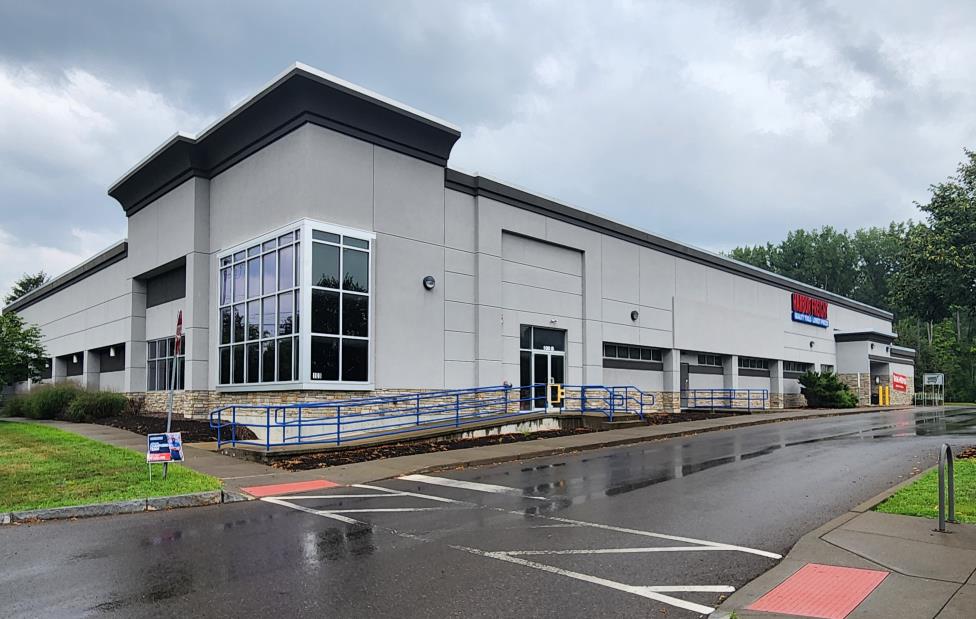
According to legislator Greg Mezey’s member-filed resolution, the County would lease space within the Commercial Avenue building with its landlord, the Maguire Family Limited Partnership, and then execute a sublease agreement with the City for the Ithaca for operation of its “Navigation Hub for unhoused individuals” within the rented space.
According to Mezey’s Resolution, terms of the sublease “are anticipated to include 50 percent (City) reimbursement of rent and other charges associated with the lease.”
Further lease terms, including monthly or yearly rental amounts, were not provided in the resolution.
State mandates require municipalities to provide a wintertime heated facility, a so-called “Code Blue” shelter, for the unhoused whenever nighttime temperatures drop below freezing. Last winter, Tompkins County retrofitted the former Key Bank building at Buffalo and Tioga Streets downtown to meet Code Blue requirements.
The former bank can’t be used next winter because the building’s scheduled to be torn down, “deconstructed,” to clear its site for the Center of Government. It’s the same reason the Board of Elections and Assessment must relocate.
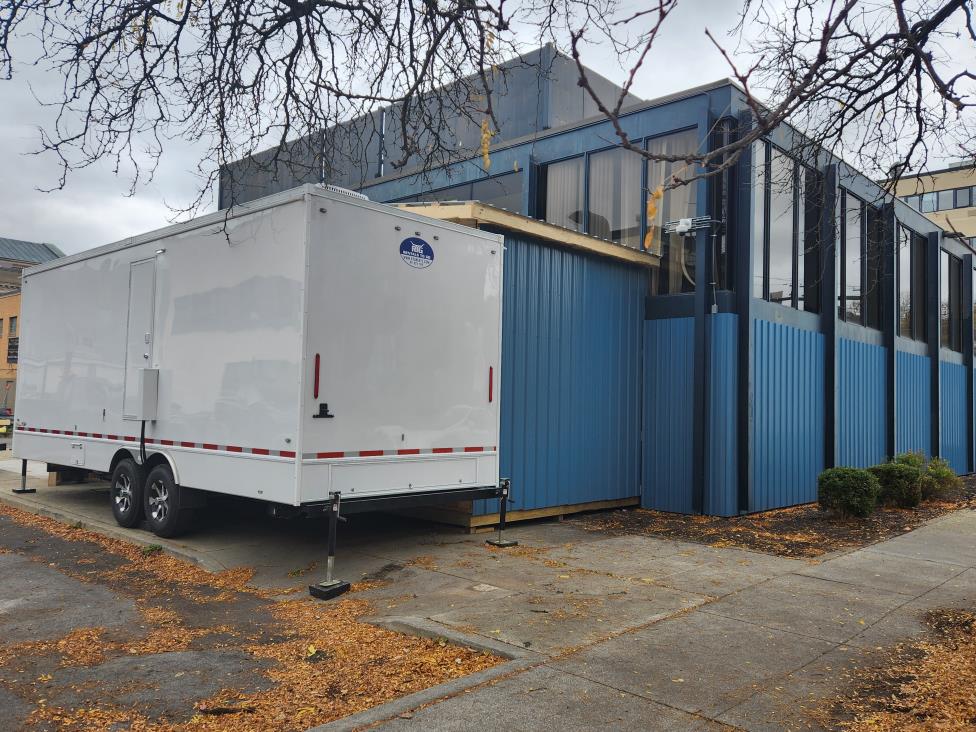
“[T]he County sought an alternate appropriate location to develop a Code Blue emergency shelter, and was approached by the City of Ithaca to collaborate on their proposed Navigation Hub for unhoused individuals currently living in or near encampments in the City of Ithaca,” the Mezey resolution states, in part.
In May of this year, the City of Ithaca updated its Pilot Administrative Policy to Manage Homeless Encampments on City Property. The revision temporarily permits camping on City-owned land generally behind the Big Box stores off Meadow Street and the Elmira Road.
In conjunction with that action, Common Council authorized the City to proceed toward establishing a “Navigation Hub” to serve the homeless population’s needs.
As described in an April 17 Ithaca Times article, “the navigation hub is envisioned as a temporary facility offering basic services and support for people experiencing homelessness, including those not currently living in encampments, until Tompkins County opens its permanent emergency shelter.”
The Times article continues: “According to the city’s updated administrative policy, the navigation hub will serve as a physical space near the encampment to provide outreach, hygiene facilities, access to housing navigators, and connections to mental health and substance use services.”
Under terms outlined in legislator Mezey’s resolution, Tompkins County, the City of Ithaca, and Maguire have negotiated a minimum three-year lease for the Commercial Avenue space, with an option to extend that lease for an additional two years, if necessary, should the County’s construction of a permanent shelter encounter further delays. The resolution states that the option for extension would assure “stability in the use of the space.”
Late last November, Tompkins County announced plans, since ratified, to purchase a dilapidated, out-of-the-way antique and collectables warehouse on Cherry Street. It stands close to the so-called “Jungle” homeless encampments. The building would be transformed into a permanent shelter for the unhoused. Whether what’s bought would be razed or repurposed remained unanswered at the time.
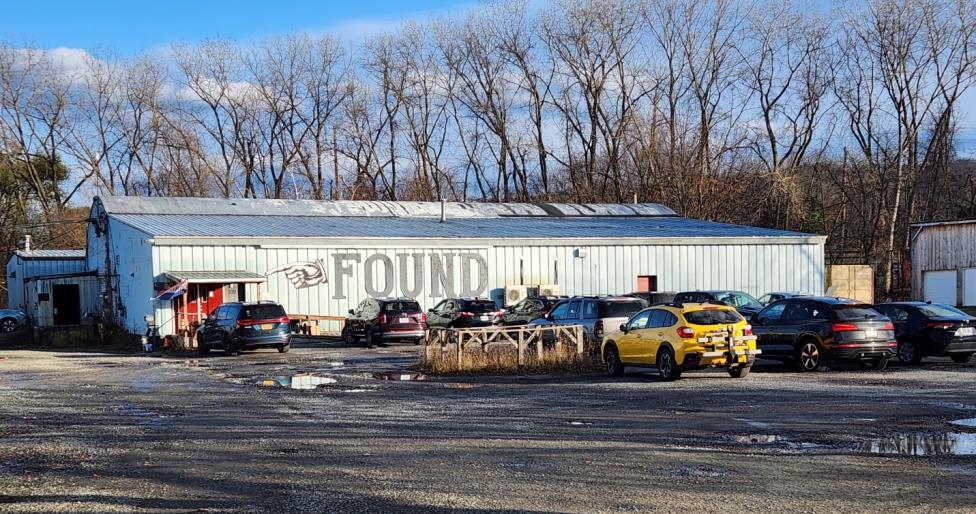
The purchase announcement never established a project completion date. A consultant’s been brought in. Designs were predicted to commence by late this year. Once built, a nonprofit agency would run the shelter. Just buying what’s already there cost County Government $1.1 Million. Legislators approved the purchase in December.
Greg Mezey chairs the Tompkins County Legislature’s Housing and Economic Development Committee, the committee holding project oversight on homelessness issues, and the shelter.
In support of the Navigation Hub, the text of his resolution claims, “the City has committed to making significant livability and safety improvements at the Southwest Parcel including working toward obtaining a permit to operate a campground in consultation with Tompkins County Environmental Health, requiring certain health and safety standards to be met.”
How the entire body of 14 legislators will receive this resolution and its “collaborative” relationship with another governmental body, one that some of its members are known to discredit, remains to be seen when Mezey’s resolution reaches the Legislature’s floor Tuesday. Just as with moving the Board of Elections to Lansing, buying-in with City Hall on the hot-button issue of homeless assistance has its share of skeptics.
###

